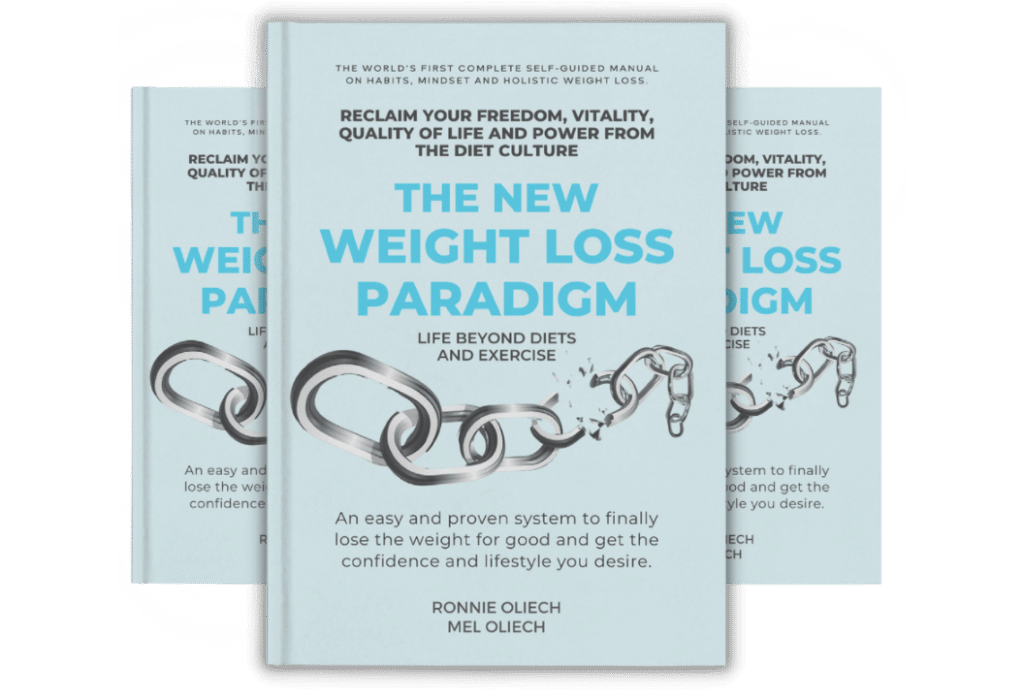“I love my job.”
“It’s what people in my industry do.”
“I don’t have a choice. There’s no one else who can do it.”
“The work has to get done.”
“If I don’t work, I don’t get paid.”
These are the justifications that people use when they constantly overwork themselves.
While there is nothing wrong with working hard or loving your job, there is a problem when you’re always working or thinking of work.
This is what’s known as being a workaholic.
Some people are not even aware they are workaholics while others wear the workaholic tag as a badge of honour. However, the truth is, being a workaholic impacts our weight loss, our physical and mental health, relationships, sex drive and sex life, and is nothing to be proud of. It’s only a recipe for disaster.
What is a workaholic?
The term ‘workaholic’ was first coined back in 1971 to describe “the compulsion or uncontrollable need to work incessantly”. Since then, researchers have studied workaholism and come up with several other definitions, as follows:
- Feeling compelled to work because of internal pressures
- Having persistent thoughts about work when not working
- Working beyond what is reasonably expected of the worker (i.e. the requirements of the job or the economic need to earn income), despite the potential for negative consequences
Being a workaholic shouldn’t be confused with simply working long hours. All of us have done that at some time or another, particularly if we were trying to meet deadlines or complete projects. And once the deadline was met, we reverted to a more normal schedule.
However, being a workaholic isn’t driven by external factors, but rather by internal factors — habits, mindsets, fears, identities, beliefs and sometimes trauma.
Signs you’re a workaholic
You see holidays as a time to recover rather than celebrate
A big sign that someone is a workaholic is they see holidays as a time to rest and recover because they never rest enough during the remainder of the year. Holidays become something that they “hang out” for because in their mind it provides much-needed downtime to recover from their endless hours of work. The irony is, that workaholics aren’t able to rest and unwind and end up working (or thinking of work) during their break.
The truth is that holidays should be a time to celebrate and do new and different things or things we don’t have time to do during our working week. Of course, it’s important to rest if you need it, but the sole purpose of a holiday shouldn’t be to stop and rest from life. It should enhance and add to your life. Holidays should be times of celebration, not recovery.
Here are some other classic signs of workaholics. How many can you relate to?
- you struggle to slow down
- always feeling burnt out
- trying to free up more time to work
- spending more time working than initially intended
- checking and/or answering emails and phone calls outside of business hours
- working to allay feelings of guilt or imposter syndrome
- feeling guilty if you stop working
- feeling that something is missing if you’re not working
- feeling stressed if you can’t work
- routinely taking work home with you
- being obsessed with work-related success
- having an intense fear of failing at work
- always complaining that you’re busy, but not addressing the problem
- thinking about work when you’re doing other things
- putting work ahead of relationships (e.g. partner, friends and family)
- putting work ahead of exercise, hobbies or leisure activities
- skimping on sleep so you can work longer hours
- having trouble sleeping because you’re thinking about work
- working to distract yourself from uncomfortable or difficult situations and feelings
- always wondering if what you do is enough, or good enough
- slapping food together, grabbing snacks or eating takeaway because you don’t have time to prepare food
- eating at your desk
- skipping meals because you’re too busy working
- not eating meals with your family
- relying on coffee or other sources of caffeine to get you through the day
- relying on alcohol to relax at the end of the day
- your identity is based on what you do for work and how much you achieve
- not knowing who you are if you’re not working
- always thinking about the next project on your ‘to-do’ list
- spending more time at work than at home
- your social circle consists primarily of work colleagues
- feeling worthless if you’re not working
- having difficulty switching off from work and resting, even on weekends or vacations
How does being a workaholic impact your weight?
Being a workaholic can impact our weight in many ways.
Firstly, if we’re always working or thinking about work, we’ll always be too busy to do the things that will help us lose weight such as work on our habits and mindsets, prepare and eat healthy meals, and get regular movement in our day. That means, we end up skipping our exercise sessions, and reaching for any food — usually processed snacks or fast food — that we can get our hands-on. This explains why workaholics always complain that they’re too busy and don’t have time.
Being a workaholic also impacts our metabolic blockers. Metabolic blockers are factors that make it very difficult to lose weight, even if we are doing everything else right. These include:
- sleep
- stress
- alcohol.
Sleep
Sleep and weight loss are intrinsically linked for many reasons. You can read the details in our blog Sleep and weight loss: The unexpected connection. But in a nutshell, lack of sleep is related to weight gain. People who are workaholics often skimp on sleep because of their compulsion to work. However, this only sabotages their weight loss efforts.
Stress
Stress is another big factor that impedes weight loss. Workaholics are often time-poor which results in a lot of stress. Not having time to eat well, exercise, and spend time with family and friends can also lead them to feel guilty, or result in the breakdown of relationships which exacerbates stress. To make things worse, stress impacts sleep as well. You can read more in our blog How stress and weight gain are linked.
Alcohol
Due to the amount of stress in their life many workaholics rely on alcohol to take the edge off and dissociate from the stress. Unfortunately, alcohol can negatively affect sleep and is linked to weight gain. Read Alcohol and weight gain: 9 ways drinking affects your body shape to learn more.
How being a workaholic impacts your relationships and sex drive
Workaholics are never present because they are always working or thinking about work. This impacts their relationships with their partner, kids, other family members and friends. Not being present means they are unable to bond and connect with others at an emotional level. This lack of bonding and emotional availability impacts relationships, sex drive/sex life, increases feelings of loneliness and resentment and often leads to divorce and the breakdown of relationships with children, extended family and friends.
What drives workaholism
Before we can look at how to overcome being a workaholic, we need to understand the reasons why people focus on their work to the detriment of everything else in their life.
As we mentioned above, workaholism isn’t about external factors (e.g. meeting deadlines, completing projects or working longer hours because your boss asked you to). It’s about your internal environment. In other words, your habits and mindsets.
There are several factors at the heart of workaholism. Here are a few.
Lack of self-worth
Lack of self-worth can show up in many ways:
- Perfectionism and Imposter syndrome
- People pleasing
- Comparing themselves with other people
- Struggling to put themselves first
- Trying to control everything
- Not feeling free to be their authentic self
You can read more about these habits, by clicking the links above.
To show you how they are related to a lack of self-worth, let’s break it down by using two of the above examples.
Perfectionism and Imposter syndrome
Why do people lose themselves to work?
Because they’re scared of slowing down.
Why are they scared of slowing down?
They feel like an imposter.
Why do they feel like an imposter?
Their self-worth relies on how much they achieve and on validation from others.
Why does their self-worth rely on how much they achieve and on validation from others?
They lack self-worth.
People pleasing
Why do people lose themselves to work?
Because they don’t know how to prioritise themselves.
Why don’t they don’t know how to prioritise themselves?
Because they struggle to say no.
Why do people struggle to say no?
Because they are people pleasers.
Why are they people pleasers?
Because they’re scared of offending people.
Why are they scared of offending people?
Because they are scared of rejection.
Why are they scared of rejection?
They are scared of abandonment.
Why are they scared of abandonment?
Their self-worth relies on being liked and validated by others.
Why does their self-worth rely on being liked and validated by others?
Because they lack self-worth.
You can read more about lack of self-worth in our blog How low self-worth affects your weight.
Personal values
Workaholics often value money, status and material possessions above all else. This means that they will always prioritise work at the expense of the things that matter the most — their physical and mental health, family, and personal relationships. You can read more about this in our blog How your values in life determine your weight.
Prioritising work over everything else can often lead to a life without meaning and purpose.
Trauma
Sometimes workaholism is a product of trauma. Trauma isn’t what happened to us. It’s how we processed what happened to us, and how it affected us. To get a good understanding of trauma we recommend you read our blog How trauma affects weight loss.
Contrary to what many people think, trauma isn’t isolated to big events. It can be linked to events that seem small and insignificant on the surface but have a profound effect on us internally. Trauma can lead to the development of habits and mindsets that are designed to protect and keep us feeling safe.
For example, someone who grew up and was only given positive attention or praise when they worked hard and achieved things, and were berated or ridiculed if they made mistakes may grow up believing their worth is tied up in what they achieve.
As a self-protection mechanism, they focus on working hard and achieving results, so they can receive praise and validation from other people because that’s what makes them feel safe. Then their identity becomes tied up in what they do and achieve, rather than who they are as human beings. This explains why workaholics feel stressed when they’re not working, or struggle to slow down.
Other people may use work as a way to protect themselves as it offers an escape from reality or a distraction from difficult or unpleasant emotions.
How to overcome being a workaholic
For people to overcome being a workaholic and therefore make it easier to lose weight, they must address the key reason for this behaviour and that comes back to their habits and mindsets.
We have been working with long-term clients for decades now and there is one thing that is at the heart of all weight loss struggles— lack of self-worth.
It’s why people seek validation through their work.
It’s why people work hard to overcome imposter syndrome.
It’s why people struggle to put themselves first.
It’s why people develop an identity that is tied up with their work ethic and what they achieve.
It’s why people become workaholics.
We explain this in much more detail in our blog Our weight loss hypothesis from working with 1000s of long-term clients.
Build self-worth to finally lose the weight
The only way people can overcome workaholism is to build their self-worth.
When they do, they will find that they no longer measure their self-worth according to what they do, what they achieve, how long they work, how much they know or what other people think of them. This will then free them from the compulsion to work.
They will then have the belief that they are worthy even when they’re not working or being a high achiever, and so will be able to put themselves first so that they have time to focus on the actions that will help them lose the weight for good and have the confidence and lifestyle they desire.
You can read more about this in our blog How to build your self-worth so you can lose weight for good.
If you’re a workaholic and have been struggling with your weight, we can help you.
As specialists in habit and mindset change, we can help you build your self-worth, so you can free yourself from the shackles of workaholism and have the body, confidence and lifestyle you’ve always dreamed of.
All you need to do is reach out to us and get started.


















